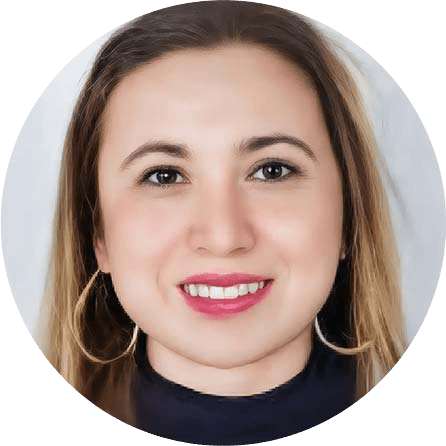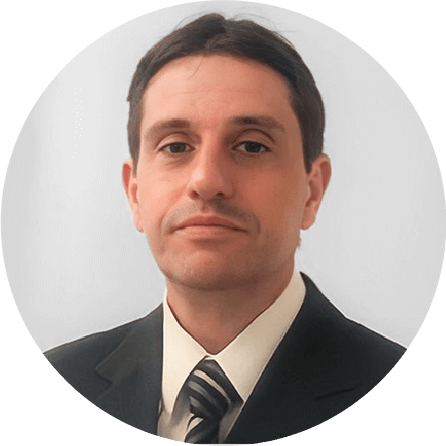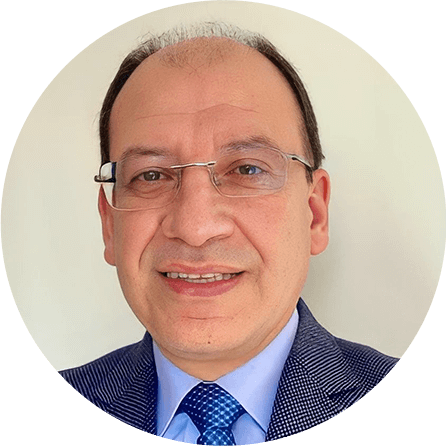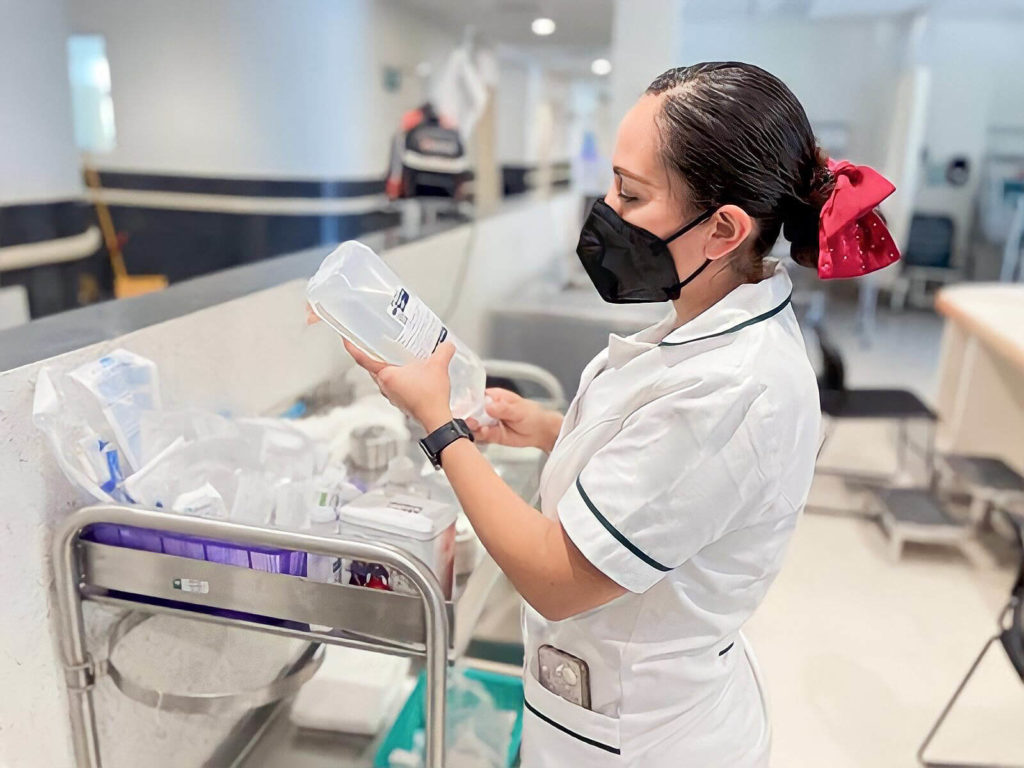WEBINAR
Occupational diseases covered by social security systems
BACKGROUND:
In their latest report, WHO and ILO estimate that around 7,500 people die every day due to unsafe and unhealthy working conditions, of which 6,500 die from occupational diseases and 1,000 from occupational accidents. Furthermore, the numbers reveal that the risk factors most associated with occupational diseases are ergonomic hazards, injuries, and exposure to particulate matter, gases, fumes, and noise.
Many of the countries that have recognized COVID-19 as an occupational disease for work activities specifically exposed to the biological risk factor have shown a significant increase in records and accident rate indicators. However, underreporting remains significantly high, especially when there are no protocols or guidelines for its recognition and diagnosis.
Within the framework of the social security systems of the region, many establish the recognition of the occupational origin of diseases on a list or table called occupational diseases. This list, if not kept under review, could affect the scope of social protection against occupational risks and preventive actions concerning the right of workers to safety and health at work. The above given the situation of emerging and re-emerging risks derived from the evolution or incidences in the organization of work.
In this context, this webinar aims to encourage the interest of countries to review and/or update the list of occupational diseases. This also considers the inclusion of social protection for pathologies derived from exposure to traditional and non-traditional risk factors present in the workplace. This effort entails international recommendations concerning those derived from psychosocial risk factors, and degenerative pathologies, among others, within the scope of the individual economic capacities of the countries.
In their latest report, WHO and ILO estimate that around 7,500 people die every day due to unsafe and unhealthy working conditions, of which 6,500 die from occupational diseases and 1,000 from occupational accidents. Furthermore, the numbers reveal that the risk factors most associated with occupational diseases are ergonomic hazards, injuries, and exposure to particulate matter, gases, fumes, and noise.
[expand title=”Leer más”]
Many of the countries that have recognized COVID-19 as an occupational disease for work activities specifically exposed to the biological risk factor have shown a significant increase in records and accident rate indicators. However, underreporting remains significantly high, especially when there are no protocols or guidelines for its recognition and diagnosis.
Within the framework of the social security systems of the region, many establish the recognition of the occupational origin of diseases on a list or table called occupational diseases. This list, if not kept under review, could affect the scope of social protection against occupational risks and preventive actions concerning the right of workers to safety and health at work. The above given the situation of emerging and re-emerging risks derived from the evolution or incidences in the organization of work.
In this context, this webinar aims to encourage the interest of countries to review and/or update the list of occupational diseases. This also considers the inclusion of social protection for pathologies derived from exposure to traditional and non-traditional risk factors present in the workplace. This effort entails international recommendations concerning those derived from psychosocial risk factors, and degenerative pathologies, among others, within the scope of the individual economic capacities of the countries.[/expand]
Academic Activity
Date
Thursday
February 16th
2023
Starts at
11:00 am
Mexico City
(UTC -5)
Modality
Virtual
Simultaneous translation
Spanish and English
Upon registration, you will receive a confirmation email within the link to join the webinar.
STARTS AT:
OBJECTIVE:
OBJECTIVE:
Share the experience and good practices of countries that have updated or modified their list of occupational diseases and how they have developed and implemented it.
Share the experience and good practices of countries that have updated or modified their list of occupational diseases and how they have developed and implemented it.
TARGET AUDIENCES:
TARGET AUDIENCES:
CISS membership, professionals in the areas of prevention and risks at work, welfare and social security, academia, civil society and the general public.
CISS membership, professionals in the areas of prevention and risks at work, welfare and social security, academia, civil society and the general public.
AGENDA
 Dr. Emilio Alfredo Carrasco González
Dr. Emilio Alfredo Carrasco González
CIESS Executive Director
11:00 to 11:10Welcome
 COORDINATION
COORDINATION
Dra. Graciela Gil Montalvo
CAPRT President, Dominican Republic
11:10 to 11:20Greetings to the audience and presentation of the subject

SPEAKER 1
Dra. Rebeca Velasco Reyna
Head of the Occupational Health Coordination Mexican Social Security Institute (IMSS)
[expand title="Curriculum"]
She is a Medical Surgeon who graduated from the School of Medicine at the National Autonomous University of Mexico, she is also a Specialist in Occupational Medicine (by the National Autonomous University of Mexico and the Mexican Institute of Social Security). She holds a Master of Science in International Occupational Safety and Health, from Ludwig Maximilians University, Munich, Germany. She is the Head of the Coordination on Occupational Health at IMSS and is certified by the National Council of Occupational Medicine A.C. She works as a Professor at the Department of Public Health, School of Medicine at the National Autonomous University of Mexico, with the subject "Environment, work and health". She is also a professor in the Diploma of Occupational Health of the Department of Public Health and Coordinator of Occupational Health at the Subdivision of Continuing Medical Education, Faculty of Medicine, UNAM, and assistant professor of the Specialization Course in Occupational and Environmental Medicine of the Mexican Institute of Social Security. She was part of the board of directors of the National Council of Occupational Medicine A.C. in the biennia 2012-2014 and 2016-2018 and was also Synodal in the different stages of the certification process from 2012-2018. She is a speaker and organizer in various activities of continuing medical education in occupational health in national and international forums.[/expand]
11:20 to 11:40Mexican case

SPEAKER 2
Dr. Paulo César Andrade
Fiscal Auditor of the Federal Revenue Service Ministry of Social Welfare, Brazil
[expand title="Curriculum"]
He is the Fiscal Auditor of the Federal Revenue Service of Brazil, acting in the Ministry of Social Welfare. He is also the Coordinator of Disability Benefits and Professional Rehabilitation. He Graduated in Dentistry at the University of Brasilia (UnB). He has a qualification in Occupational Safety and Health from the ILO. He also has a Specialization in Health Sciences - Health Surveillance - Health Services at the University of Brasilia (UnB), and a Specialization in Prevention and Protection of Occupational Risks at the Ibero-American Social Security Organization (OISS) Madrid, Spain. He holds a Master's Degree in Health Sciences - Occupational Health from the University of Brasilia (UnB).[/expand]
11:40 to 12:00Brazilian case

SPEAKER 3
Dr. Edgar Velandia Bacca
Main Physician of Room 1 of the National Disability Qualification Board, Colombia
[expand title="Curriculum"]
He is a surgeon from the National University of Colombia. He is a specialist in Occupational Medicine from Universidad del Rosario and a specialist in Occupational Health Administration from Jorge Tadeo Lozano University. He holds a Master’s in Education from Javeriana University, and a Master’s in Direction and Management of Social Security Systems from Alcalá University - OISS Spain. He was the Chief Physician of Room 1 of the National Board of Disability Rating. He was also Deputy Director of Occupational Risks of the Technical Chamber of Occupational Risks of the Federation of Colombian Insurers – FASECOLDA – for more than 16 years, coordinating technical and operational issues of interest to the union for the Occupational Risks Administrators. He served as coordinator of the national disability rating network of Fasecolda and has been a consultant for the World Bank and the Inter-American Development Bank (IDB) in Disability Rating Systems and Tables of Occupational Diseases. He participated in the team that designed and elaborated the disability qualification manuals of the Governments of Colombia, Bolivia and the Dominican Republic. He has been a member of the National Committee of Occupational Health and its representative before the National Council of Occupational Risks, was a member of the Sectional Committee of Occupational Health of Cundinamarca, a member of the commission for the drafting of technical standards of safety and health at work of the Ministry of Social Protection, has been an expert on issues of definition of Total and Permanent Disability, lecturer at various events at the national and international level, teacher and instructor of Occupational Medicine, Occupational Medicine, Occupational Safety and Health and Social Security in several universities and institutions in the country as the Javeriana University, and Externado University of Colombia, Manuela Beltrán University, Jorge Tadeo Lozano University, among others.[/expand]
12:00 to 12:20Colombian case
COORDINATION
12:20 to 12:30Q&A session



